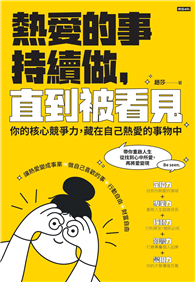Calliope is a book dealing with loss and regret at the midpoint of life, and the desire to get back to the formal moment when one’s naïveté inspires hope, promise and belief. The paradox, of course, is can one regain it once wisdom has been acquired through experience? Maybe the answer lies in Nietzsche’s devotion to a constant re-evaluation of values. It is at this point where the artist once again meets the muse.
After the loss of all material possessions, of innocence, of identity, of sympathy, of happiness, of God and hope, perhaps an adventure with the electric, orange-haired muse is the key. Devoid of morality and with a penchant for mischief, she is for all intents and purposes Greek, which means pre-Christian. Therefore, her moral code is not affected by the guilt of Christianity. Her nakedness throughout the novel in part symbolizes her complete lack of shame. When Calliope tricks the protagonist into partaking on a wild, episodic flight that intertwines both nature and civilization that sparks shadows of Rousseau, that involves shoplifting and punk rock music, she is not unlike Dante’s Virgil leading him on an adventure spiraling back toward redemption. It is only after such a journey that the artist can destroy and create, and having achieved such a thing, he or she is now opened to the return of that natural state experienced most prominently in youth where possibilities seem endless...where hope replaces loss.| FindBook |
有 1 項符合
Calliope的圖書 |
 |
Calliope 作者:Pucci 出版社:Createspace Independent Publishing Platform 出版日期:2013-07-21 語言:英文 規格:平裝 / 118頁 / 22.86 x 15.24 x 0.64 cm / 普通級/ 初版 |
| 圖書館借閱 |
| 國家圖書館 | 全國圖書書目資訊網 | 國立公共資訊圖書館 | 電子書服務平台 | MetaCat 跨館整合查詢 |
| 臺北市立圖書館 | 新北市立圖書館 | 基隆市公共圖書館 | 桃園市立圖書館 | 新竹縣公共圖書館 |
| 苗栗縣立圖書館 | 臺中市立圖書館 | 彰化縣公共圖書館 | 南投縣文化局 | 雲林縣公共圖書館 |
| 嘉義縣圖書館 | 臺南市立圖書館 | 高雄市立圖書館 | 屏東縣公共圖書館 | 宜蘭縣公共圖書館 |
| 花蓮縣文化局 | 臺東縣文化處 |
|
|
圖書介紹 - 資料來源:博客來 評分:
圖書名稱:Calliope
|









